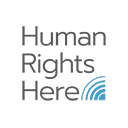2023 Research Workshops
A Prescription for Disaster: Racial Discrimination in the Context of the Right to Health - 16 November 2023, Utrecht University
The COVID-19 pandemic underscored the vital importance of everyone’s right to health. The pandemic also shone a spotlight on pre-existing structural inequalities in our societies, with disproportionate burdens falling on communities exposed to racial discrimination, particularly women and those of low socio-economic status. There has since been increasing interest in health and its underlying determinants—particularly racism. The UN Committee on the Elimination of Racial Discrimination, led by Tina Stavrinaki, has begun drafting a General Recommendation (n°37) on racial discrimination and the right to health under Article 5 (e)(iv) of the International Convention on the Elimination of All Forms of Racial Discrimination (CERD). A workshop hosted by Julie Fraser in Utrecht brought together a diverse group of multidisciplinary experts to discuss the first draft of this forthcoming General Recommendation. Participants working at the intersection of health and racial discrimination examined the concept of ‘health,’ the impact of racial discrimination on Roma communities, refugees, and migrants, as well as the domestic situation of racial discrimination in the Netherlands.
Please find an elaborate and comprehensive summary of the event here.
Human Rights and Natural Resources: Balancing Scarcity, Accessibility, and Protection for a Sustainable Development - 12 October 2023, Erasmus University Rotterdam
The relationships between human rights and natural resources are often complex and multi-faceted. This is an especially timely discussion, demonstrated by the ongoing erosion of planetary boundaries and increasing calls for sustainable development. In recognition of these complexities, the one-day Workshop on Human Rights and Natural Resources, held on 12 October 2023, stimulated discussion with a view to having a more holistic approach to the topic. The workshop was hosted by the Erasmus School of Law and supported by the Netherlands Network for Human Rights Research and the small grants scheme of the research initiatives Rebalancing Public & Private Interests and Erasmus Center of Empirical Legal Studies. The organizing committee included Leonie Reins, Alberto Quintavalla, and Candice Foot. Against this backdrop, the workshop addressed topics related to the complexity of balancing the scarcity of natural resources, the accessibility of resources necessary for the realization of human rights, and the societal imperative to ensure the protection of both. The presentations demonstrated that natural resources are foundational to multiple human rights, and the preservation of one is integral to the protection of the other.
Please read the full report on the workshop here.
Future-proofing Your Human Rights Research: Climate Change as a Cross-cutting Issue for Human Rights Research - 26 September 2023, Groningen University
Human-induced climate change is now the pre-eminent threat to human and planetary health. Its impacts are already widespread and disruptive for many communities and are expected to worsen in the coming decades. Urgent action is needed; according to the Intergovernmental Panel on Climate Change, the scale of (in)action until 2030 will determine our own future and that of human generations for hundreds, and likely thousands, of years to come. Advancing the notion that climate change is a major factor for the universal enjoyment of human rights, the workshop, co-hosted by the Groningen Centre for Health Law and Tilburg Law School, explored the current state of climate science, the impact of climate change on societies and the ensuing effect on human rights, as well as the emotional toll on students and researchers.
Recommendations from the workshop included the development of a teaching guide, facilitating internships and courses in other faculties, inviting guest lecturers from other disciplines, exploring the intersectionality of climate change with other types of discrimination, and exploring the rights of nature and of future generations in the context of climate change. A key outcome of the workshop was the proposal for a NNHRR working group on climate change and human rights, which seeks to bring together academics studying the multifaceted ways in which climate change affects human rights.
Read the report on the event here.
NNHRR members interested in becoming a member of the working group should contact David Patterson at d.w.patterson@rug.nl.


